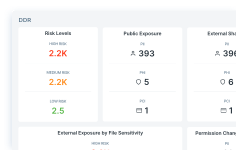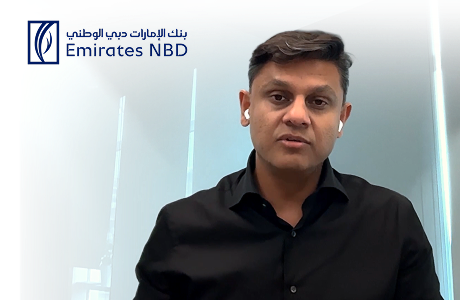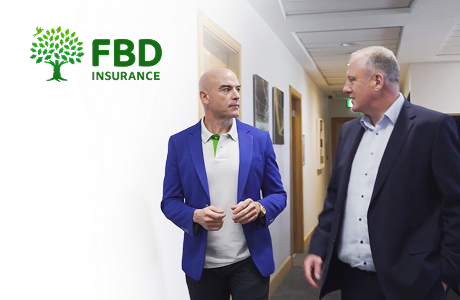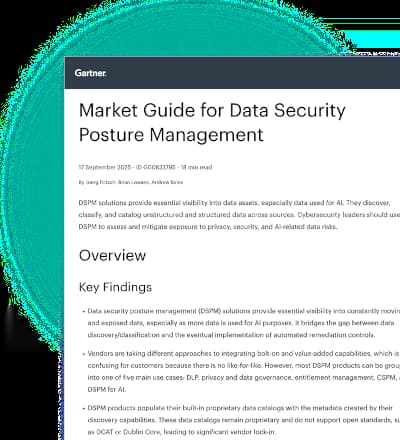
Tips on Staying Healthy in the "New Normal" with Kevin Isaac
Share
Podcast
Popular Episodes

50 mins
REPLAY: Someone Needs to Do Something, But Who?
Episode 278
March 26, 2024

47 mins
Cyberwar, Social Media’s Future and Passing the Mic with Peter W. Singer
Episode 206
November 8, 2022

56 mins
The Conga Line of Cybersecurity in 2022 with Manny Rivelo
Episode 167
January 25, 2022

48 mins
See Something, Do Something: A Conversation with Dmitri Alperovitch
Episode 160
November 30, 2021
Podcast
Tips on Staying Healthy in the "New Normal" with Kevin Isaac
Kevin Isaac talks how he is balancing focus on work, health, well-being and rest challenged by our “new normal” lifestyle.
Episode Table of Contents
- [01:30] How Are You Doing With Keeping Healthy in The New Normal
- [07:26] Losing Our Balance and Struggling to Be Healthy in The New Normal
- [12:29] The Mental Piece That Needs to Remain Healthy in The New Normal
- [16:15] Choosing to Lean In and Be Healthy in The New Normal
- About Our Guest
How Are You Doing With Keeping Healthy in The New Normal
Arika: We are joined this week by Forcepoint's Chief Revenue Officer, Kevin Isaac. How you doing Kevin?
Kevin: I'm fantastic from my home too Arika, across sea.
Arika: Yes. Across the pond though which is exciting for us.
Kevin: Yes and it's not raining. It's amazing. In England and it's not raining. What a pleasure.
Eric: Arika, I've never seen Kevin in his house so much. We were having a Zoom party a couple of weeks ago. Everybody used this dining room background as the background.
Eric: We were having a meal with Kevin. It was great because he's always on the road.
Arika: Well you haven't been, right Kevin? I mean I think like most of the world we've all just been at home. The question that we have taken for granted that we've asked people in the past but we shouldn't take for granted right now is how are you doing?
Kevin: Thank you. We were talking about this earlier but there are some really terrible times obviously but what good can we take of this and time with my family is a blessing, I'll tell you.
The Gift of Realization
Kevin: My two boys are home from university and being able to break bread with them in the evenings and share a little bit of family time is something I'm probably going to keep with me for the rest of my life.
Kevin: I also think the opportunity to just really assess our values and what's important in life when confronted with this terrible situation that we're looking at globally is a gift that we all have as humans to really assess who we are and what's important. So how am I doing? I'm doing fantastically, thank you.
Kevin: We have a tremendous opportunity to use the current challenges that we face as opportunities to become better people.
Eric: Kevin, you're always an optimist and I really do appreciate that but I agree with you. We've got a monumental event that's impacting the globe right now. Everybody will remember this and a lot of us do have time to celebrate some of the good.
Eric: We're going to come back to this event. We're going to remember the time we spent with our families, where we slowed things down. So there is some good coming out of this.
Kevin: Yes, there is. When we start looking outside of ourselves and the people around us, the question is how do we lead. How do we set an example and how do we become a positive influence in our virtual community?
Kevin: Because that's what we have right now, the virtual community. Here we are around the world having a virtual discussion about this stuff.
Personal Challenges Around Leadership
Kevin: The discussion that we were having now is precipitated by an article I wrote on LinkedIn and also by a note I sent internally to my team around my own personal challenges around leadership. And how do I stay focused?
Kevin: How do I stay aligned? How do I stay leading? How do I lead at the time like this when I've never done this before? What are the team looking for and how do I show compassion and show support and show leadership to the people around me?
Kevin: I have the privilege of leading a global team. Interacting with the Italian team first of all and they've been through a terrible time as you know and just seeing the Italian team reaching out for reassurance and reaching out for a word and reaching out for a sense that they were not alone.
Kevin: I think they felt very much alone initially in the world for a while. The interesting thing was every time talking to them, they were saying, "Please, please pay attention to what's going on with us because it's coming."
Kevin: We didn't understand what that meant and it came. But they were looking for this reassurance, looking for a sense of connection. I've never spoken to so many people on my contacts database as I have in the last few weeks.
Kevin: People reaching out that I haven't spoken to for years saying, "Are you okay?" And looking for that sense of connection to just know that we are connected, that we're okay and that we're in this together. It's incredible.
Fastidious Focus on Time Management
Eric: Kevin, you send out a couple of articles and Arika, I think we forwarded them to you. I know you don't work here. One was on astronauts in isolation and one was on submarine kept in tips. I found them fascinating because you're comparing our new normal to something that is very normal for a percentage of the workforce.
Eric: Astronauts typically isolate by definition in their jobs as do submarine personnel. I just found them fascinating. What were the big takeaways from your perspective there?
Kevin: First, why did I send them out? Why did I have them? I went and looked for them because I was looking for help to understand how I could help my teams. I was looking for my own sense of cadence in terms of what I needed to do.
Kevin: The article by the astronauts, and if you need a copy of this it's on my LinkedIn profile in that article. The astronauts' article was interesting because a couple of astronauts, one actually went into a diving bell and spend months underwater before going to the space station.
Kevin: Another one went to live in the South Pole for six months before going to the space to learn how to be isolated which I found very interesting. We didn't have much time to learn.
Kevin: The interesting thing that struck me the most was the fastidious focus on time management and the astronauts actually talk about the fact that the days are broken down into five minute segments.
Losing Our Balance and Struggling to Be Healthy in The New Normal
Kevin: Now I know that we don't have an army of people at NASA helping manage our calendar.
Kevin: Probably a little bit of a bridge too far. But the interesting thing that what we're finding now is that if you can break your day down at 15-minute segments or 20-minute segments, a lot of the meetings we used to have in the real physical world would have been an hour or 45 minutes.
Kevin: Can we do the same in 20 minutes and can we plan our days? So there's a lot we need to be doing. A lot of the team are struggling with this concept now that we're at home. We're almost stuck to our computers for 12 hours a day and we're losing our balance and our sense of work-life. And that in itself is very dangerous.
Kevin: Me, the concept of being able to plan your day down to 15 or 20 minutes segments and then plan in coffee breaks, plan or walk, plan some time in the sun. If you can get into the garden or if you're allowed onto a balcony or whatever, get time away from your PC, make sure you plan time to break bread with your family.
Kevin: Have that cycle where you can actually feel like you've accomplished something every single day. Even if it's going to check on the post or making sure that your deliveries are coming in or whatever it is. At least you have a routine and you build that into your day which is incredible.
The Simple Things That Keep Us Healthy in The New Normal
Kevin: The other thing that the astronaut was talking about was trying to do things at the same time. She was talking about the concept of when there's a marathon going on on earth, she literally would get on the treadmill and run the marathon with her friends virtually from the space station just to feel a sense of connection with those people.
Kevin: I found that very, very interesting because what we've seen a rise of on Zoom is these happy hours. For one team playing guitars and things the other day. That sense of connection of doing things at the same time together.
Kevin: Eric and I were talking about a Strava community this morning where we could all exercise and compare what we're doing as teams. Just to feel like we're connected and feel like we're part of something, even though we're not physically together. These simple things, time management and collaboration and being connected I think are the two big takeaways for me.
Eric: Arika, how are you doing? I know you live in DC, we've talked about this, you're isolated like anybody else. Does this resonate with you? How are you doing?
Arika: Well, absolutely. My situation is I live alone and actually I've worked from home for five years, so that is not such an adjustment there. But I'm also accustomed to a lot of work travel. And I'm also just accustomed to being able to socialize and balance my home life from my work life. And right now it's all one.
Taking Control of Our Health in The New Normal
Arika: The connections are incredibly important. Kevin, just as you said, I'm talking to people that I haven't talked to in quite some time. I have a Zoom happy hour coming up with some law school classmates. I don't think that we've all gotten together as a group since 12 years ago when I left law school. So things like that are important.
Arika: But I do think routine is incredibly important. Kevin, in your LinkedIn article, Control is an Illusion, I think what we're trying to do is focus on what we do have control over. You do have control over your routine, how you manage your day, those types of things. We don't have control on essentially what's happening outside right now or happening in the world.
Arika: That's really what I've been trying to do, just focus what I do have control over. My morning routine is incredibly important to me, more so now than before because I do believe it sets the tone for how my day goes and even small things.
Arika: I'm lucky enough I have a Peloton. I've been doing a lot more rides with people that I know so we can feel connected. We're in the same class, things like that. It's an interesting time, especially when you live alone and you truly are. It's like I am an astronaut right now. Space station.
Eric: On your own space station.
The Mental Piece That Needs to Remain Healthy in The New Normal
Kevin: The other article I referenced was one by a submarine captain. It was a British submarine captain. Sorry about that. But it was interesting because he talked about two other things. Number one exercise and you mentioned that.
Kevin: I think exercise right now is really important. I don't think we realize as humans sometimes the importance of physical exercise and the effect it has on our minds and our psyche until we're in that funk and then we realize it's too late.
Kevin: We've got to make sure that we're paying attention to all of those pieces of our biosystem and we've got to manage. The other thing that the submarine captain talked about is uncertainty, paranoia. I can imagine being a little bit uncertain when you're below the ocean and in a nuclear device.
Kevin: The uncertainty of being alone and being separated from your manager and from your colleagues and the normal office dynamics and how you’re doing in terms of your work, et cetera. I think that the mental piece of it is important to keep under control as well.
Kevin: The way to do that obviously is to maintain video conferencing, to maintain communications. Talk about how you're feeling and also try to remain level headed and not let the imagination get the better of you in terms of where you think things are going on at all.
Control What You Can Control
Eric: It's interesting. One of my sons reached out to me yesterday via text of course because he's now a millennial or maybe he's not even a millennial at this point, but he said, "Are we going to be okay?" And I was like, "Look, I got to call you on this one. I got to call you." And I'm talking to him.
Arika: That's hard to text back on.
Eric: I mean what do you say? This is the one who's a little rebellious and he's gone out on his own and he does his own things and doesn't listen to parents that well. So I got him and he answered and I said, "We're going to be okay. It's going to be okay."
Eric: Let's control, back to your control as an illusion, Kevin and your comments Arika, control what you can control. Going to work every day, working out, mental health, creative routine. You can't control the economy. You can't control a lot of things that are happening right now. But control what you can.
Eric: Make a list. You always have to list but it's like making a list of the things that are concerning you. Then prioritize based on what you can control and try to compartmentalize or we'll talk through the others. So very, very important point, Kevin.
Kevin: It's wonderful that by the way, that he reached out to you.
Eric: I think he's really, really scared right now as a lot of people in the world are.
Hiding Behind Rose Tinted Windows Is Not Healthy in The New Normal
Eric: You don't know, you don't control this virus. You don't control whether you have a job in two weeks or what the world looks like. People are scared and I think he was very scared.
Kevin: And I think hiding behind rose-tinted windows or glasses is not the answer. We are, we're going through a change in our humanity. The good news, by the way, is that this challenge is small compared to the Spanish flu for example. And some of the other challenges that have happened in our history. It's going to be a dot in history once we're past it.
Eric: Maybe a big dot, but yes, it will be a dot.
Kevin: You're right, it's going to affect all of us. The only thing I can hold on to right now, record what I am holding on to is the fact that there's a lot of good that's going to come out of it as well and a lot of positivity. If you look at the analysts and what we're seeing from some of the initial sort of statistics that are coming out, there is hope.
Kevin: There is hope that the market's going to rebound. There is hope that we're going to be able to really rebuild the businesses we need to rebuild. We've got to hold onto that and lean in. What I will say as well, and I think I told you this on one of our internal calls, is I heard a speech in my early 20s from an insurance salesman from the 1970s and he was a successful motivational speaker.
Choosing to Lean In and Be Healthy in The New Normal
Kevin: He talked about the fact that in the 70s I think it was that a huge crash in the insurance industry and nine out of 10 insurance companies failed. The funny thing is the 10th one absolutely crushed it and did double or triple the numbers and the whole point was, is that attitude affects altitude.
Kevin: The people who choose to lean in, be the difference, be the positive influence, and the person who can make a difference and get up in the morning and go for it, have a greater chance.
Kevin: If nine out of 10 people are doing 50% in a market that's down 30%. There's 20% from nine people. What's that? 180% extra for the 10th person who's prepared to do double.
Kevin: The opportunity right now for us and for our kids is to teach them to lean in in the hard times. To teach them that in hardship, there's always opportunity. In challenge, there's always the not while we can but how we can and what difference we can make.
Kevin: I'm optimistic as you said, but what I do know is what you said and that is I can control what I can control. I've got a choice every morning when I get up.
Eric: Great point. Arika, you're in touch with the youth of today. You're so in touch with people. What's your final guidance or advice here for us?
Arika: Honestly, I think it's everything that Kevin just said.
Recommit Everyday to Make It a Great Day
Arika: It's just about your mindset and again focusing on what you do have control over and realizing that life is a marathon. There's going to be these different types of challenges and hopefully nothing to this magnitude anytime in the near future.
Arika: It really is an opportunity to learn about yourself. I've told people I've been doing a lot of thinking. I have a lot of time on my hands to think. I just think about the person that I want to make sure that I am on the other side. We just have to recommit every day to making it a great day.
Arika: That may mean some days just getting out of the bed and working out. Some days it might mean you write a book, who knows? Just try to do your best to make sure you get through every day. And I like Kevin’s recommendation, break it down.
Arika: Sometimes you just have to focus on getting through the next few minutes as opposed to getting through the next few weeks or ourselves. Thank you Kevin. This was a fantastic talk.
Arika: We sometimes spend time on very technical topics, I think it's also nice to just talk about things that we know our listeners, don't matter where you are in the world, everyone is going through this together. I do think that there is strength in that. So we appreciate you joining us from England and sharing your insight and just your great, I would say, just optimism. It's appreciated.
Eric: Yeah. The human component is so important right now. Thank you Kevin.
Kevin: Thank you.
About Our Guest
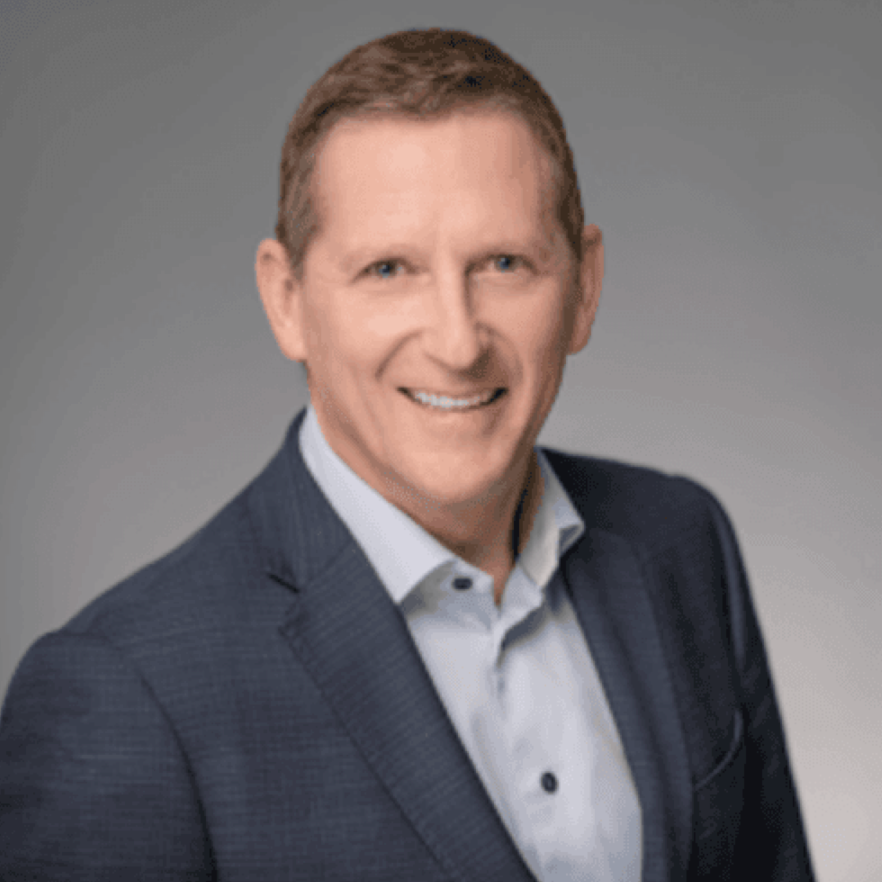
Kevin Isaac is a 30-year technology industry veteran, and has served as the chief revenue officer for Forcepoint and spent more than 15 years in international leadership roles at Symantec, where he was instrumental in repositioning the company as a pure security player. Before joining Symantec, Isaac spent several years in technology sales leadership and general manager roles focused on emerging European markets.

